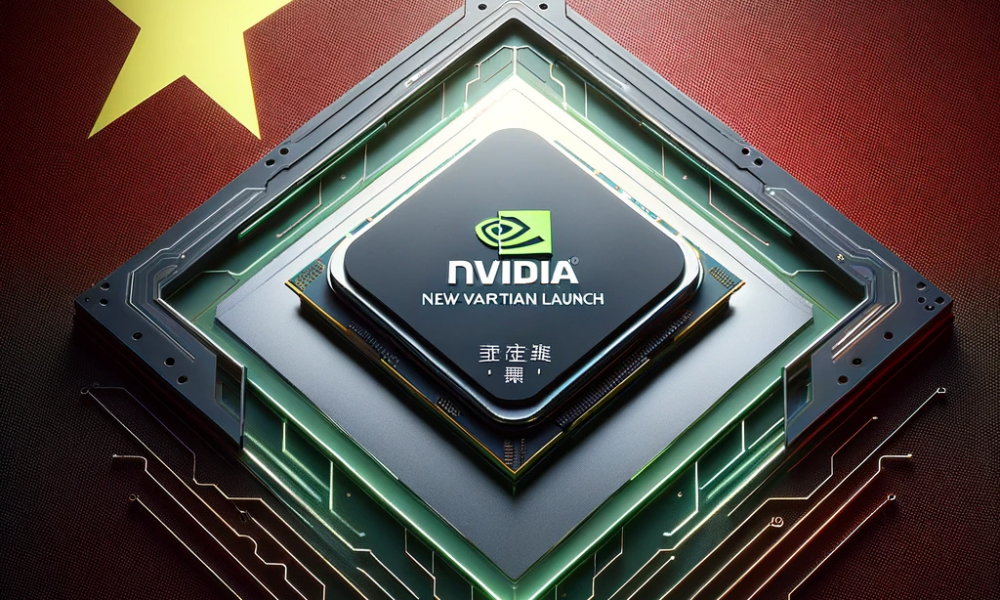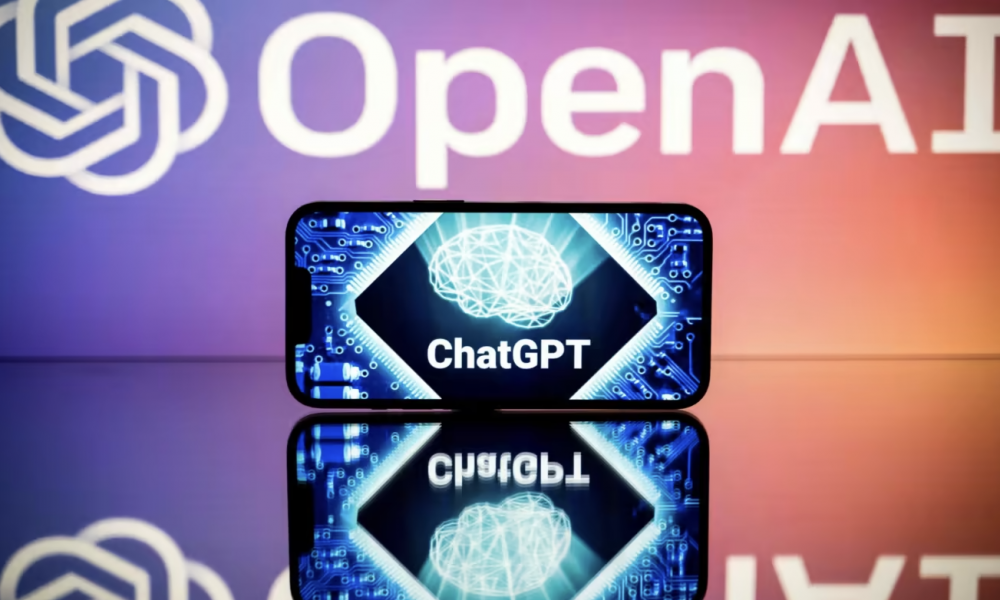Category: Business
Digs Secures $7 Million in Funding for Its Home Builder Collaboration Platform
Based in Vancouver, Washington, Digs, a platform designed for collaboration, offers homebuilders, vendors, and eventually homeowners, a virtual representation of a house. The company recently announced an expansion of its initial $7 million seed funding from 2023 by an additional $7 million. Leading this new investment round are the Oregon Venture Fund (OVF) and Legacy Capital Ventures, joined by previous investors such as Fuse, Flying Fish, Betaworks, and PSF, as well as a new participant, Deepwater Asset Management.
Digs CEO and co-founder Ryan Fink expressed enthusiasm about the involvement of experienced investors like OVF and Legacy in their seed round, emphasizing their role in guiding the company through rapid growth. He highlighted the importance of their expertise in scaling consumer technology for Digs’ continued efficient growth and market strategy enhancement.
Fink, along with Ty Frackiewicz, also founded Streem, a company focused on creating virtual home replicas using smartphone cameras, which was acquired by Frontdoor in 2019. Currently, Digs adopts a different strategy, emphasizing document sharing among builders, vendors, and homeowners, utilizing AI and computer vision for better document interpretation. This approach is supported by a modern platform for real-time collaboration and document storage.
Gene Munster, managing partner at Deepwater, praised Digs for elevating the home building and ownership experience, recognizing the team’s use of AI to address everyday challenges for builders and homeowners.
Digs has recently transitioned from beta to full availability in the U.S. and Canada. Its clientele includes both boutique and national builders.
To support its growth, Digs has appointed Jef Holove as its chief operating officer. Holove, who previously led Drop and was involved in Streem, Basis (acquired by Intel), and Eye-Fi (acquired by Ricoh), brings a wealth of experience in leading successful ventures.
Holove describes Digs’ digital twin as encompassing all necessary information for home builders and owners, ranging from structural details to appliance specifications, streamlining home management and improvement with easily accessible, personalized insights.
Nvidia to unveil a less powerful variant of its gaming processor in China in adherence to U.S. export regulations.
Nvidia, a prominent U.S. chipmaker, is set to release a modified version of a gaming processor in China, named the Nvidia RTX 4090D, with reduced performance to adhere to U.S. export regulations. This new version will feature 11% less CUDA cores compared to its international counterparts. CUDA cores are vital components of Nvidia’s advanced RTX line of gaming GPUs, serving as a parallel processing unit akin to CPU cores.
The adjustment is a response to U.S. government export controls aimed at limiting China’s access to certain advanced chips, including those capable of supporting AI technologies. Despite no immediate comment from Nvidia, a representative confirmed the chip’s compliance with U.S. export controls and mentioned the company’s extensive engagement with the U.S. government during its development.
Notably, the standard Nvidia RTX 4090 was previously listed as a banned export due to its potential AI applications. Despite these challenges, Nvidia has experienced significant stock growth in 2023, largely driven by a surge in AI demand, notably influenced by the development of AI technologies like OpenAI’s ChatGPT.
Nvidia RTX 40-Series Enhanced Edition Cards Set for Release at Consumer Electronics Show
Nvidia is gearing up for an impactful presentation at the upcoming CES event in Las Vegas, creating anticipation with rumors of unveiling new RTX Super GPUs. As the event draws near, excitement builds with regulatory filings from Nvidia’s partners hinting at the specifications of the upcoming GPUs. The RTX 4080 Super is expected to receive a mild upgrade, while the RTX 4070 series is rumored to undergo more significant improvements, though pricing remains uncertain until the official release.
On January 8th, Nvidia plans to present its latest developments at 8 am PST, focusing on “AI innovations,” a theme that seems prevalent for this year’s CES. In addition to AI, the company is slated to reveal three new Super GPUs: the RTX 4080 Super, RTX 4070 Ti Super, and RTX 4070 Super. Regulatory filings from MSI, as reported by Videocardz, and teasers from Gigabyte give a glimpse into Nvidia’s plans, indicating substantial upgrades for the RTX 4070 series cards. In total, Nvidia is preparing 12 new GPUs for launch, with four variations of each SKU hitting the market.
The RTX 4070 Ti Super appears to be receiving the most significant update, upgrading from a 12GB card with a 192-bit memory bus to a 16GB model with a 256-bit memory bus. Additionally, it’s expected to see an increase in CUDA cores from 7680 to 8448, while power consumption remains steady at 285W, suggesting no change in GDDR6X memory speed. Initially priced at $799, the pricing strategy for the Super version is anticipated to be competitive, especially against AMD’s 20GB Radeon 7900 XT priced around $779.
Meanwhile, the RTX 4070 Super is also set for a considerable upgrade in CUDA cores, rising from 5888 to 7168, a substantial 21% increase. This is all while maintaining the same 192-bit memory bus and 12GB of GDDR6X memory. Originally priced at $599, this model faces competition from AMD’s RX 7800 XT, priced at $549, prompting curiosity about Nvidia’s pricing response.
The RTX 4080 Super seems to be in line for the least dramatic upgrade, sticking with the AD103 die and retaining the 16GB memory configuration of its predecessor. It’s speculated to receive a slight increase in CUDA cores, from 9728 to 10240, which is a modest 5% enhancement. Given the minimal changes, it’s possible that the price will remain at the original $1,199, unless Nvidia decides to make it more appealing with a price drop, potentially to $999.
As the tech community eagerly awaits the official unveiling, these speculations and rumored details set the stage for a potentially game-changing series of GPU launches from Nvidia. The exact specifications, performance improvements, and pricing strategies will only be confirmed at the CES presentation, where Nvidia will reveal how it plans to shape the future of gaming and AI technology with its new lineup of Super GPUs.
Xiaomi declares an unprecedented achievement with a sales record of $3.11 billion on Singles Day.
During the annual Singles Day shopping event, Xiaomi, a renowned Chinese electronics company, reported exceptional sales across various platforms. From October 23 to November 11, Xiaomi’s sales surpassed 22.4 billion yuan (approximately $3.11 billion) on platforms like Alibaba’s Tmall and Taobao, JD.com, Pinduoduo, and Douyin.
Xiaomi’s shares in Hong Kong experienced a brief surge, increasing over 2% on a Monday morning. Meanwhile, shares of Alibaba and JD.com in local markets initially rose but later relinquished their gains.
Both Alibaba and JD.com, for the second consecutive year, chose not to disclose overall sales figures for the Singles Day event. JD.com highlighted reaching new peaks in transaction and order volumes, while Alibaba reported growth in gross merchandise value, order numbers, and merchant participation compared to the previous year.
In terms of brand performance, JD.com reported that Apple products reached a transaction volume of over 10 billion yuan, mirroring the figure from 2021’s Singles Day, though no comparable data for 2022 was provided. Lululemon, a newer entrant in the Chinese market, witnessed a 260% increase in sales on JD.com compared to the previous year.
Alibaba, however, remained relatively reserved about specific sales data for products or brands during the entire festival.
Xiaomi announced its Xiaomi 14 smartphone as the best-selling item on Alibaba’s Tmall from November 4 to 11 and also claimed top positions in various categories of Chinese smartphone sales on different e-commerce platforms.
HSBC analysts, impressed by the Xiaomi 14’s sales, predicted a positive impact on Xiaomi’s earnings and valuation. They increased their shipment forecasts for Xiaomi smartphones by 7% for 2023 to approximately 150 million units and by 6% for 2024 to 160 million units.
Singles Day, which has evolved from a one-day event to a weeks-long shopping extravaganza in China, saw Alibaba reporting sales “in line” with the previous year during the 2022 Covid-19 pandemic, which had recorded about $84.54 billion in gross merchandise value.
Consumer spending in China has been cautious due to uncertainties about future income. A survey by Bain and Company revealed that 77% of Chinese consumers did not intend to increase their spending for this year’s event.
Live streaming and short video platforms like Alibaba’s Taobao and ByteDance’s Douyin continued to grow as significant sales channels. Livestreaming GMV rose by 19% this year, with Tmall dominating the comprehensive e-commerce platforms category with a 60% share, according to Syntun and Morningstar analyst Chelsey Tam. JD.com and Pinduoduo held 28% and 7% shares, respectively.
Kuaishou, another short video and livestreaming app, reported a nearly 50% increase in orders during the Singles Day period.
Further insights into Singles Day results and consumer trends in China are expected in the upcoming earnings calls of major companies like JD.com and Alibaba later this week.
Bosch, SAP, and several other companies support Europe’s response to OpenAI, injecting $500 million in new funding.
Aleph Alpha, a German startup challenging the Microsoft-backed artificial intelligence firm OpenAI, announced on Monday that it had secured $500 million in funding. This funding round enjoyed support from notable entities such as Bosch, SAP, and Hewlett Packard Enterprise.
In its second major funding round, Aleph Alpha, known for creating its extensive language models, amassed a notably substantial sum for a series B investment round. This financial backing primarily hails from German companies, with major enterprises like SAP, Schwarz Group (Lidl’s owner), and consulting firm Christ&Company Consulting contributing to this new round. Park Artificial Intelligence and Burda Principal Investments also joined in.
The precise valuation of Aleph Alpha following this funding round was not disclosed.
The newfound resources will be allocated towards research on foundational models, enhancing product capabilities, and the commercialization of its software, as stated in the company’s official announcement on Monday.
Jonas Andrulis, Aleph Alpha’s CEO and founder, expressed, “With this latest investment, we will continue to enhance our capabilities and enable our partners to be at the forefront of this technological development.” He emphasized the company’s commitment to expanding its offerings while preserving customer independence and flexibility concerning infrastructure, cloud compatibility, on-premise support, and hybrid setups.
One of Aleph Alpha’s primary technological objectives is the concept of “data sovereignty,” which asserts that data stored in a specific country should be governed by the laws of that nation. In a European context, this implies that the data fueling AI models should originate in Europe rather than the United States. This notion has gained favor among prominent European politicians and legislators who seek to safeguard their autonomy in matters of data storage and processing.
Andrulis emphasized that Aleph Alpha stands as the “best option” for companies valuing sovereignty as a critical element. Aleph Alpha’s language models can already converse in German, French, Spanish, Italian, and English, drawing from a vast repository of multilingual public documents published by the European Parliament.
This latest funding round underscores the intense activity within the venture capital landscape related to AI. Investors are racing to support companies developing the foundations of highly advanced AI models, often referred to as generative AI, capable of responding to inquiries in a more humanlike manner. OpenAI, backed by Microsoft, secured a staggering $10 billion in funding, while Inflection, an AI startup co-founded by the creators of DeepMind and LinkedIn, raised $1.3 billion.





